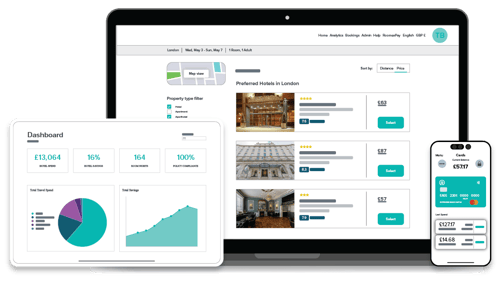When you’re one half of a couple, frequent business travel can take its toll on your relationship.
Often you find yourself miles away from family on special occasions, missing birthdays, parties and anniversaries. There’s also something particularly poignant about sitting down to a table set for one in an unfamiliar restaurant amid the sound of strange accents and clinking glasses.
However, for some business travellers (and even their partners) there is a middle ground. ‘Bleisure’ travel - as it has been dubbed by some in the travel industry - is the mixing of business trips with leisure experiences. While people were probably ‘bleisuring’ long before the advent of the awkward word amalgam, it has recently gained attention as a trend due to quantitative analysis carried out by several corporate travel companies (namely BridgeStreet® Global Hospitality and Carlson Wagonlit Travel’s 2016 white paper on the topic).
Deborah Zanke’s IT consultant husband, Steve, is a frequent business traveller, often spending half the year in transit. Rather than remain grounded while her hubbie trots the globe, the couple have devised a lifestyle where Deborah goes too. They are the quintessential bleisure travellers often taking 2-3 days on to trips or using the business trip as a springboard to a vacation to reduce the airfare costs.
‘We’ve organised our lives around travel. We’ve chosen holiday destinations specifically because they are close to where the business travel took us,’ said Deborah, who chronicles her experiences on the blog, TagAlongTravel.com. ‘I have a public relations practice and I’m fortunate that I can work remotely - that means I can tag along with Steve’.
‘We haven’t calculated our travel stat for 2016 as yet, but in 2015 Steve was on the road 171 days to 44 cities in 11 countries,’ she said. ‘I tagged along on about half of those trips’.
Travel industry commissioned research which tracked the volume of bleisure trips taken between 2011 and 2015 concluded that year on year, 20% of business travellers took leisure time at either the beginning or end of their trip. While the report’s authors were loath to call their findings a new trend, what is new is the recognition that a specific pattern of behaviour exists. Bleisure travel, it would appear, is definitely a thing. Interestingly, the study found that female travellers who travel infrequently for work were most likely to take a few post-business leisure days and Millennials (twenty-somethings) were the age group most attracted to the idea of exploring places beyond the hotel conference centre or hotel complex.
Even without the statistics, widespread evidence suggests that the boundaries between business and leisure have become increasingly blurred. (How many of us can deny checking work emails long before we ever reach the office? Which of us could admit to having Facebook minimized in another window while toiling away at an excel spreadsheet during office hours?)
‘I don’t think it [bleisure travel] is new, but I suspect it happens more frequently now than in decades past because people are more mobile with the use of technology,’ said Deborah. ‘I think it’s easier to extend time away because you can maintain an online connection with work and home’.
The rise of economical airfare, the addition of modern technology and the ability to work remotely, has changed our expectations of business travel. Anecdotally at least, it is becoming increasingly acceptable to mix business and leisure; from a hospitality management professional point of view it is beneficial to look at how bleisure is accommodated into current business travel policies and to consider both its human and financial implications.
Although Steven and Deborah are both self-employed – which gives them a lot more freedom to plan their work and play schedules - Deborah believes companies should be jumping at the chance for employees to take their other half along when they have to travel for work.
‘Before Steve was self-employed his company recognised that frequent business travel was not an easy lifestyle,’ said Deborah. ‘His boss tried to make is as stress-free and positive as possible so there was never an issue with me tagging along’.
If you’re curious about your company culture or even its policy towards bleisure travel you could approach the subject with your manager. ‘As long as you are carefully tracking expenses I can’t see why a company would discourage it,’ said Deborah. ‘It makes business travel less stressful, more enjoyable, and more of a perk than a burden. If you want to keep productive, valued employees on the road you should be encouraging bleisure time and family tagging along’.
It’s a really economical way to travel and has many relationship and business benefits,’ she added.
If you’re planning a Bleisure trip to the States anytime soon, we’ve been researching and compiling a business travellers guide that will help you find your bearings in a variety of major cities in the US. Download it below for free. (We also have an European City Guide for Business Travellers on our website if you’re interested.)
Tags:
Workforce Travel
October 28, 2016

